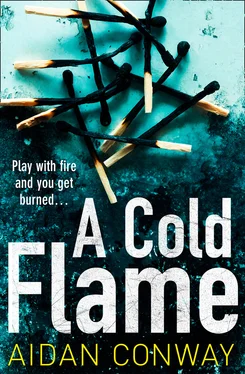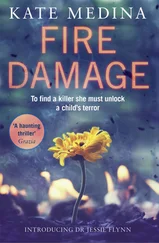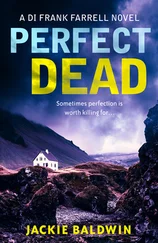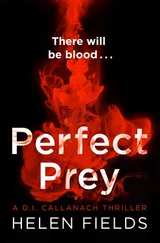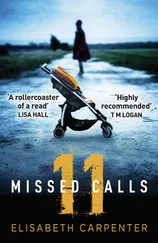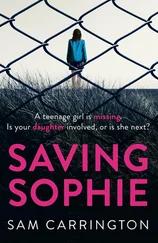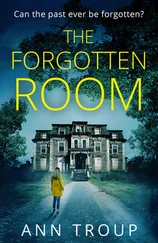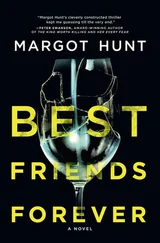1 ...6 7 8 10 11 12 ...18 “Bad dreams?” said Carrara.
“Bad memories more than dreams,” Rossi replied. “I can deal with the dreams. You wake up from them.”
Doctor Piredda was sitting waiting, his hands joined on a writing pad in front of him, a clunky monitor and a computer keyboard yellowed to a soiled ivory colour to one side on his sparse, largely unencumbered working space. He reached across to shake hands with them both, his white-coated bulk straining against the edge of the desk.
“A bad business,” he began. “And still none the wiser, are we?”
Who we was supposed to be, Rossi couldn’t quite be sure.
“I went through it all, you know,” he continued, “with your colleague. He looked down then at his notes in an open Manilla folder. “Lallana.”
“Yes,” said Rossi. “He’s in homicide, specifically. We, Inspector Carrara and I, are from the Serious Crime Squad. We are investigating acts of arson in the city, and we were wondering if there was anything else that may have come to light in the intervening period. Apart from the identification, of course. Any anomalies, for example? We are fairly certain it was intentional. Could you give us something that might indicate intent?”
Piredda shook his head. Rossi knew the signs: that he wasn’t going to stick his neck out on the motive behind the fire.
“Death was due to asphyxiation in primis. The absence of oxygen. It would have been relatively rapid, in the circumstances, with the confined space and the volume of highly toxic smoke.”
“Even with the windows open?” said Carrara. “It was hot. There were locked bars on the windows but the windows themselves must have been open, for ventilation.”
“I think that’s beside the point. The oxygen coming in would only have fed the flames further. They would have quickly lost consciousness, in minutes, and the burns would then in a sense have been secondary factors. Horrendous though they were. I’m sure you know that most victims are not actually burnt to death. What’s more, they will have been asleep and the chances are they were already inhaling the fumes as they slept. They were, I believe, in all but one case found close to where they would have been sleeping. It was night. You can’t orientate yourself in such conditions, and the heat would have been completely overpowering.”
“The ethnicities?” said Rossi feeling already that it was going to be a wasted visit. “Age? Nothing you think you might be able to add?”
“I provided my estimates for age, considering a margin of error of around three to five years either way. I also provided the racial profile. Nothing has changed, Inspector.”
“You said African. Black African. And North African.”
“That is correct. Three black African corpses. One North African. The other victim, of course, was identified by his jewellery. His ‘dog tags’.”
“Could you hazard a guess as to a country, a more specific region?” Rossi asked. “South or West African? You see we’ve had very little in the line of witnesses who had even seen the occupants.”
“Seems like we’ve run into a bit of omertà ,” Carrara chipped in. “No one’s saying a goddam word.”
The doctor gave a weak smile.
“That’s more difficult without DNA tests, but I’d venture that the two black Africans were likely sub-Saharan, possibly West African.”
“But we could run those tests,” said Rossi. “If necessary, and get something more definite on age. It could help narrow the search considerably. It might give us something more to work on.”
“Teeth can give excellent results. Carbon-14 dating and crown dentin analysis, without blinding you with the science, Inspector. Of course it takes a little time and it’s rather expensive and there are budget constraints to consider. But if it’s required …,” he trailed off without appearing to exude any great enthusiasm at the prospect.
Carrara meanwhile had whipped out his phone. He nudged Rossi.
“We’re going to have to adjourn, I’m afraid,” he said.
“Now, what?” said Rossi. “Another fire?”
“No. Look,” he said showing Rossi the screen on his wafer-like smartphone. Codice Rosso. Tutte le unità . A red alert. For all units.
“You will have to excuse us, Dottore ,” said Rossi, rising with as much decorum as was possible but already making for the door. “Maybe we can talk about that DNA again soon, but it seems we have a major incident in the city. I think it would be a good idea to alert the hospitals. Perhaps all of them.”
The Libertas Language Centre was on a side street off the road running south away from the centre and parallel with the Brutalist concrete bulk of Termini station. Here, at only two or three minutes’ walk from the station’s buzz, it was already far enough away from the bars and shops to attract very few tourists. Just beyond the school, there was an improvised stall selling pornographic magazines and videos for the remnants of the pre-digital generation. Staff smoked and idled outside a Chinese wholesaler of knick-knacks and costume jewellery, and there was a knot of middle-aged men chatting intently outside a cut-price Indian takeaway. The language centre served as a focus, especially on hot afternoons in summer, for various nationalities who loitered on the footpath and against the railings on the raised walkway leading further away from the station. Some had improvised a marketplace underneath its slope where, on tarpaulins and rugs, they laid out second-hand clothes, shoes, kitchenware and dated household goods and furnishings.
Olivia Modena had already stacked up her books, the unmarked homework, and the register. The money a non-profit cooperative paid her for the few hours a week she taught Italian to immigrants was hardly worth the effort but she wasn’t there for that. She was there because she needed the experience, but also because she enjoyed making a difference. She enjoyed seeing the barriers between herself and the others coming down as their trust in her grew. She took pleasure too from seeing some of those same barriers crumbling between people who would never have had occasion to meet in other circumstances.
For some the dream of making something with their lives was still fresh and real, and their vigour and optimism could be uplifting, especially on mornings when the weight of her own existence sometimes dragged her down. Even when you liked what you did and couldn’t imagine doing anything else, getting up every morning, criss-crossing the city and juggling work commitments was draining.
For others it was not so easy. She saw the hope dwindling in their eyes as the obstacles they encountered day after day began to sap their energy and their belief. Work with anything like a decent contract was not easy to come by. For those who worked in agriculture, the gangmaster was king. A call could come in at the last minute and they would be expected at an often ungodly hour to get to the appointed meeting place on the outskirts of the city from where they would be picked up and driven to a remote destination. If they didn’t want to accept the going rate it was too late then to turn back. Take it or leave it – there’s a queue of workers outside the door. Add to that the back-breaking work under a searing sun for twelve hours or more, and maybe the promise of more of the same the next day. Maybe.
When they weren’t working, they were killing time, getting by, and other exploitative figures sought to draw them into criminal and other informal money-making ventures. Drugs, prostitution, the running of prostitution. Protection. Punishments. Contracts. There was always an outlet in a city with a hunger for sex and chemical oblivion that never wavered, and weed and coke were the best earners.
Читать дальше
